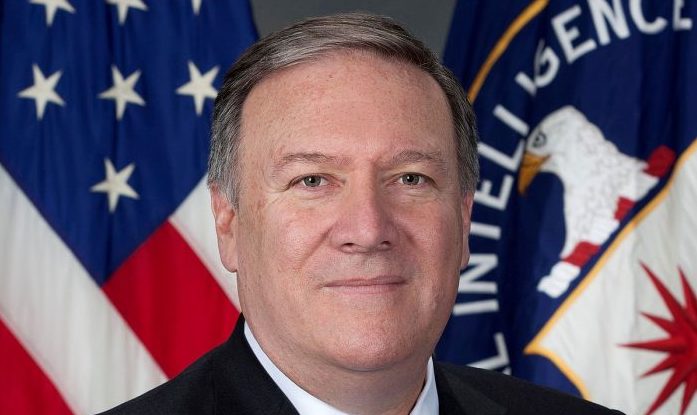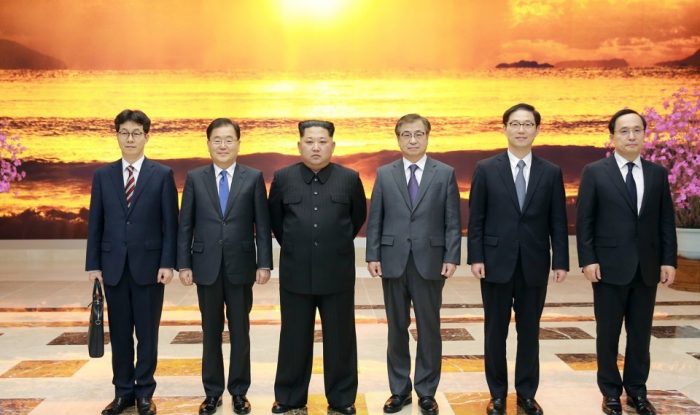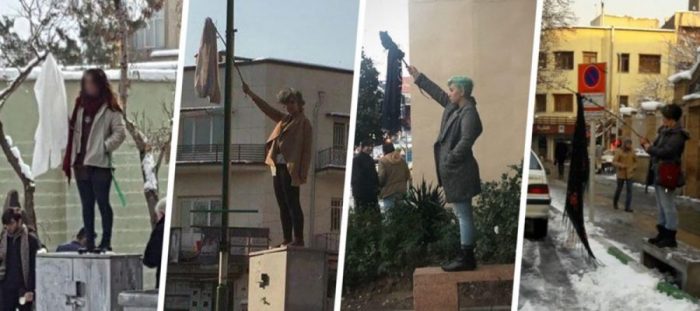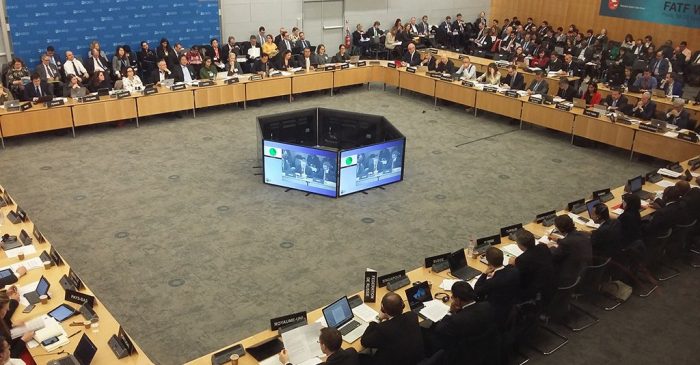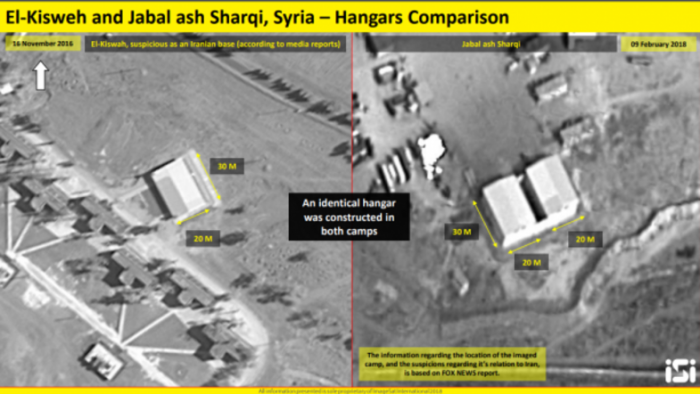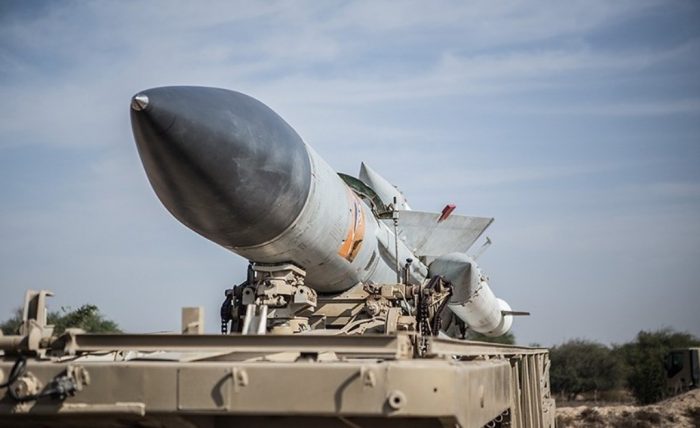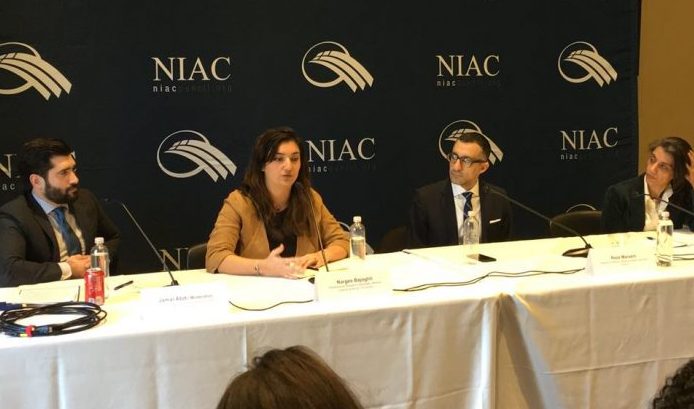Apple reportedly shutdown access to its App Store to users and developers in Iran last week raising intense speculation as to why the tech giant restricted access, although Iranian users reported being able to access the store by the weekend.
Speculation ranged from potential U.S. sanctions looming on the horizon to the announcement of CIA director Mike Pompeo to replace Rex Tillerson as U.S. Secretary of State.
The Iran lobby weighed in predictably as well, with the National Iranian American Council leading the blame game with a statement it issued in which it again displayed the irony of decrying Apple’s move, while at the same time never criticizing the Iranian regime’s weaponization of those some smartphone apps to identify and arrest potential dissidents and protestors.
Earlier this month, the National Council of Resistance of Iran (NCRI), the largest Iranian dissident group in the world, issued a report detailing how the Iranian regime has launched a sophisticated cybercampaign to deploy apps on Apple and Google’s app stores that mimic more well-known apps and allows the regime’s security services to monitor the activities of Iranian citizens, as well as export malware cyberattacks against U.S. citizens.
Starting with the massive election protests of 2009, smartphones have played a vital role in organizing opposition to the Iranian regime and helped share video, photos and audio of the brutality of the regime as it has arrested, beaten and even killed protestors over the years; culminating to the most recent protests that have rocked Iran over the past two months.
These include protests over poor economic conditions, rampant corruption within the regime and even over morality codes by women who have abandoned head scarves and posted photos on social media in a form of soft power protest that has landed many of them in prison.
Nearly 48 million Iranians have smartphones with about 70 percent of them having access to the internet, making Iran one of the more connected nations in the Middle East, but the regime has struggled to restrict Internet access and have tried to disrupt the usage of popular messaging apps such as Telegram and WhatsApp by protestors.
The move by Apple, while not publicly commented on by the company yet, highlights the precarious nature of technology in Iran. The regime uses it as a prolific tool for cyberwarfare while the rest of the free world views it as an engine of change, commerce and communication.
The NIAC highlights this in its statement saying:
“Access to communication technology is important for both humanitarian as well as U.S. strategic interests, which is why exemptions for Internet communication tools were put in place under the previous Administration. Allowing these exemptions to fall by the wayside helps no one except those who seek to keep the Iranian people silent.”
It’s a laudable position to take, but hollow and empty when we consider how the NIAC has never criticized the Iranian regime for its manipulation of technology to restrict protests.
“We have already been in communication with the U.S. government about decisions late last year by Apple and Google to block Iranian developers from hosting applications on their platforms. We have emphasized the need to broaden exemptions to reverse such decisions and will redouble our efforts to address these new challenges,” the NIAC statement said.
It’s a twisted piece of logic by the NIAC since the NCRI report, as well as similar reports by national intelligence agencies, have long documented the Iranian regime’s use of Iranian programmers to create apps that have malware embedded in them and efforts to crack the encryption of apps such as WhatsApp.
But this exclusion of Iran from the Apple App Store is not the first time. Back in August of 2017, Apple removed all apps created by Iranian developers from its App Store as a result of U.S. economic sanctions.
Iran’s own Telecommunication Minister said the ban of Iranian-made apps would probably have a limited effect on the country’s economy and tech industry, as the US company had only an 11 percent market share in the country, according to a report from the New York Times, but the move was bound to hurt the regime’s intelligence gathering efforts.
Far from hurting Iranians, as the NIAC suggests, restricting the Iranian Revolutionary Guard Corps access to these app stores benefits those Iranians who rely on clandestine technology to spread, share and collaborate in their dissent.
This is why the NIAC continually misses the mark in its position papers and statements because of its slavish devotion to the Iranian regime and an uncompromising reluctance to ever criticize Tehran on anything.
The NIAC should be focused on the cyberwall the regime operates allowing it to monitor virtually all Internet activities of the Iranian people. The NIAC should be calling on the regime to end its use of bogus social media apps to monitor its own people. The NIAC should call for the release from Iranian jails any Iranian being detained for posting a video or photo that violated the regime’s draconian morality codes.
The NIAC should speak on behalf of freedom and democracy and not try to support a regime that is slowly dying from the corruption that is rotting the core of the Iranian government.
That rot has become so apparent to the Iranian people that they have been motivated to post online their own protests and Apple and other Western companies should be encouraged to do more to obstruct the Iranian regime and aid these people in their quest for freedom and democracy.
Michael Tomlinson

